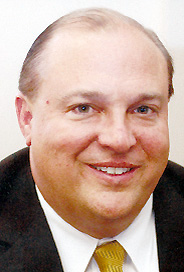City’s tax take $275K down so far in ’09

Youngstown finance director David Bozanich

Youngstown Mayor Jay Williams
Youngstown’s income-tax collection is down, and could get worse, the finance director says.
YOUNGSTOWN — As city officials work to reduce — and possibly eliminate — layoffs, they face more bad financial news.
The city’s income-tax collection for the first four months of 2009 is about $275,000 less than city officials had projected, and the shortfall could rise to as much as $1 million by year’s end, said Finance Director David Bozanich at a city council finance committee meeting Monday.
The city had expected about $16 million in income-tax collections as of April — and $44.2 million for the year, he said.
“It’s nothing alarming, but I’m being cautious,” Bozanich said after the meeting about the potential $1 million shortfall.
The city collected $47.9 million from the tax last year. The struggling economy is the primary reason why city administrators reduced the projected tax collection for this year compared to the 2008 collection amount, Bozanich said.
The news of a potential $1 million shortfall comes as the board of control is to approve an early-retirement buyout today for members of its ranking police officers union.
City council and the Youngstown Police Ranking Officers union — which includes the 64 police sergeants, detective sergeants, lieutenants and captains in the department — have already approved the offer. Each officer taking the buyout will receive one year’s salary spread evenly over five years.
City officials should know in about two weeks how many supervisors will take the buyout, and most of those accepting the deal will be off the city payroll in about two months, Bozanich said.
The Youngstown Police Association union, representing about 115 patrol officers, will vote on taking a buyout Thursday.
But the city administration also wants the patrol officers’ union to agree to a lower entry-level salary for new hires. A rookie officer receives about $37,000 annually in base pay, plus benefits and any overtime worked.
Without a decrease in starting pay and enough officers taking the proposal, the city is going to be hard-pressed to hire new cops, Bozanich and Mayor Jay Williams said. They declined to say how much they propose the starting annual salary for officers should be.
“Our goal is to replace every officer who leaves, and lower salaries makes that easier,” Williams said.
The city’s 2009 general-fund budget includes $860,000 in personnel cuts, including $655,000 from the police department. That equates to up to 34 city workers, including 22 to 26 officers, losing their jobs.
But enough officers taking the buyout could avoid layoffs, Williams said.
It is hoped the proposal will be so popular and the patrol officers union will agree to reduce starting pay that the city can replace those taking the buyout, Williams said. Also, federal-stimulus money to fund the police department would help, he said.
The number of street patrols will remain the same regardless of how many officers are replaced, Bozanich said.
If the city can’t make up money lost from income-tax declines, it might have to reduce the number of city employees. But that decision is far too premature to make now, Bozanich said.
Det. Sgt. Charles Guzzy, president of the ranking officers union, said the buyout deal has already “generated a lot of interest. I’m surprised by the level of interest.”
But he would not estimate how many members of his union would take the deal.
Also, city council will consider whether to approve two union contracts at its Wednesday meeting.
One contract is with the American Federation of State, County and Municipal Employees Local 2312-B union, which represents 14 part-time park and recreation department workers. That contract calls for employees to receive a one-time 5-cents-an-hour raise, retroactive to April 1. Those union members earn between $7.35 and $9.21 an hour. The contract is retroactive to Jan. 1 and expires Dec. 31, 2011. Those union members don’t receive health-care benefits.
The other contract is with AFSCME Local 2312, which represents 95 secretaries and clerical workers. The three-year proposed contract is retroactive to Jan. 1, 2008.
The proposal with that union calls for a 3 percent retroactive raise for 2008 and salary freezes for this year and in 2010.
That contract can be reopened in January 2010 with raises to be negotiated if the city is on stronger financial footing at that time, said Cicero Davis, the union’s president, and Williams.
The salary range for Local 2312 members wasn’t available Monday.
skolnick@vindy.com
 43
43
